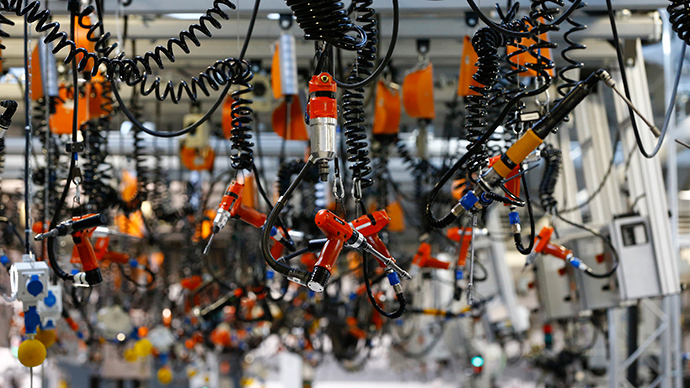Obsolete: 33% of British workers replaced by machines over next 20 yrs?

More than a third of all UK jobs could be replaced by machines in as little as 20 years because of rapid advances in technology, according to a study.
The paper, by two Oxford University academics and Deloitte released on Tuesday, found that repetitive processing, clerical and support service jobs are most at risk of being replaced.
Rapid advances in computer intelligence puts jobs at high risk of disappearing, the researchers found.
“High risk” jobs include office and administrative support, sales and services, transport, building and extraction, and production.
“Although the replacement of people by machines is well understood, the scale and scope of changes yet to come may not be,” the report said.
However, 40 percent of UK jobs are at low or no risk (51 percent in London), the researchers said, including positions in skilled management, financial services, computing, engineering and science, education, legal services, community services, the arts and media, and healthcare.
READ MORE:'Lost decade': UK workers face real wages drop until 2017
It also found that jobs paying under £30,000 a year were almost five times more likely to be replaced by machines than jobs paying more than £100,000.
In London, about half of all jobs were at no or low risk of being replaced, with a large section of the population already in highly skilled roles.
READ MORE:UK tops world table for economic growth
The research also showed that the fastest-growing jobs worldwide include employments that barely existed 10 years ago, such as Zumba dance fitness instructors and Big Data architects.
Deloitte senior partner Angus Knowles-Cutler said: “Unless these changes coming in the next two decades are fully understood and anticipated by businesses, policy makers and educators, there will be a risk of avoidable unemployment and under-employment.”
“Skilled cities like London are incubators for new ideas and products. With the right policies, London can be at the front-line in developing the next generation of digital technologies,” concludes Carl Benedikt Frey of Oxford University.














